Uganda Travel Tips
Travel Tips for Uganda
Thinking of heading to Uganda for a gorilla trekking adventure and safari holiday? Wondering what vaccinations you might need and what you can expect of the local food? Look no further than our Top Travel Tips which provide a wealth of information on all the essential need-to-knows.
What Vaccinations Do I Need for Uganda?
You should seek medical advice from your local health practitioner before traveling to Uganda and ensure that you receive all the appropriate vaccinations. As a guide, Polio, Diphtheria, Hepatitis A & B, and Tetanus are strongly recommended. Rabies and Meningitis are also recommended. Following an outbreak of yellow fever in April 2016, the Ugandan Ministry of Health now requires all travelers to provide proof of yellow fever vaccination.
Do I Need Anti-Malaria Tablets for Uganda?
There is a high risk of malaria in Uganda, so it is very important to check with your doctor before you go to see whether malarial medication is required for the areas you are visiting. Generally, it is good practice to avoid mosquito bites by wearing long-sleeved, light-colored clothes and wearing a mosquito repellent that contains at least 50% DEET. For more information on the malaria risk in Uganda, visit the NHS Fit to Travel page or the CDC Traveler’s Health page.
What’s the Food Like in Uganda?
Ugandan food tends to consist of meat-based stews or sauce dishes accompanied by ugali, a thick doughy paste made from maize, or matoke, cooked and mashed green banana. Aside from meat and vegetables, beans and ground nuts are also added to stews for texture, and cassava, yams, and sweet potato all make regular appearances on the dinner table. Thanks to its many rivers, Ugandans also eat a lot of fish, particularly tiger fish and tilapia. Uganda is largely considered Africa’s fruit bowl with a variety of fruits available, including the popular Jackfruit.
For something a little different, why not try a handful of deep-fried grasshoppers? If you can’t stomach these insects, then there are plenty of Indian-influenced dishes that are served with chapattis. For dessert, many locals eat mandazi, deep-fried dough covered in cinnamon or sugar. To go with your meal, grab yourself a glass of pombe, a fermented beer made with millet or banana.
Safe Eating While Traveling in Uganda
Be wary when eating outside of high-end lodges as sometimes the quality of the meat and the way in which it has been prepared might not be suitable for a sensitive western stomach. Also, be aware that food hygiene in Uganda is much more basic than you will be used to, so if something looks unclean, old, or badly cooked, it is best to avoid it altogether. It is also a good idea to avoid ice in your drink and eating salad as these might have come into contact with unhygienic water.
Safety
Uganda is generally a safe and incredibly welcoming country – in the cities as well as in rural areas. It is unlikely you will experience any trouble. Just exercise the usual precautions, avoiding carrying large amounts of cash or having valuables on display. There have also been reports of motorcycle drivers snatching bags; wear shoulder bags on the side away from the road, or stick to backpacks/cross-body bags which are harder to remove.
Possibly the most dangerous thing you can do in Uganda is ride a boda boda – the ubiquitous motorbike taxis. They may drive down the middle of or even on the wrong side of the road to beat the chaotic traffic. Additionally, there is no street lighting, the boda bodas themselves rarely have lights, and you won’t have a helmet. For many Ugandans, they are a necessity, but travelers should spend a bit longer – and pay a bit more – for a regular taxi.
Always listen to your guide when around wildlife. The superb national park rangers can read animal behavior and know how near you can get on foot, when an animal is distressed or hungry, or if it is likely to charge. This really is life-saving advice – heed it!
If staying in or close to a national park, animals may wander through your accommodation grounds – particularly at night, so heed warnings, and always carry a torch. In tented camps, it may be dangerous to leave food in your tent as animals such as baboons and warthogs can smell it and tear through the tent. If this is the case, there is usually a safe, sealed storage area available for food and drink; your guide or accommodation owner will advise.
If traveling by boat or going on a rafting trip, always make sure you are wearing a lifejacket. If you are traveling with children, ensure they have lifejackets too – and that they fit properly. Accidents are rare, but they have happened. If you are taking photographs from your boat, wrap the camera strap around your wrist or neck. Hippos have been known to appear from nowhere and surprise tourists – who then drop their cameras.
Homosexuality is illegal in Uganda, and will result in arrest and possibly imprisonment. Same-sex couples should act extremely discretely in public.
Best Places to Visit in Uganda
There are several places to visit in Uganda and among these include:
- Queen Elizabeth National Park: For amazing wildlife safaris
- Bwindi Impenetrable National Park: Home to over 50% of the mountain gorillas on earth
- Murchison Falls National Park: Holds rich wildlife and the world’s most powerful waterfalls, Murchison Falls
- Kibale National Park: The Primate Capital of Africa
- Source of the Nile River in Jinja town: The Adventure Capital of Africa
- Ziwa Rhino Sanctuary: Home to Uganda’s only wild rhinos
- Lake Bunyonyi: Uganda’s most beautiful lake
- Mountain Rwenzori: Stunning snow-capped peaks
- Cultural sites: Kasubi Tombs, Sezibwa Falls, Amabeere Cave area
What to Do in Uganda
There is a range of amazing safari activities in Uganda and among these include:
- Mountain Gorilla Trekking: In Bwindi Impenetrable National Park
- Boat Cruise: On Kazinga Channel
- Game Drives: In Murchison Falls and Queen Elizabeth National Parks
- Chimpanzee Trekking: In Kibale National Park
- Nile Boat Cruises: In Murchison Falls Park
- Adventure Activities: White water rafting and kayaking on the Nile, Rwenzori mountain hikes
- Nature Walks: In various parks like Mburo National Park
- Cultural Encounters: Visiting the Batwa people, IK, and Karamajongs
- Relaxation: On Lake Bunyonyi
When to Visit Uganda
Uganda can be visited all year round, but the best time is during the dry months of June-August and December-February. During these months, most parts of Uganda receive minimal rainfall, and trails are usually drier, making them ideal for all Uganda safaris. The vegetation is typically dry, which is ideal for game viewing.
However, note that these months are peak tourism seasons in Uganda, and parks tend to be crowded. Therefore, the price of tourism products like accommodation tends to rise. March-May and September-November are wet months in Uganda. Some trails become slippery and muddy, making hiking challenging. However, parks are less crowded, and tourism products in Uganda are relatively cheaper.
Security Travel Guide to Uganda
All visitors traveling in Uganda should follow this security travel guide for a memorable experience. This will help to keep your properties secure as well as your life.
- Lock Your Travel Bag and Keep All Valuables in Your Hand Luggage: Locking your travel bag and keeping all your valuables in hand luggage is essential for security. Keep money, passports, and bank cards in a handbag. In case of loss of your travel baggage, you’re not much affected.
- Make Duplicates of Important Travel Documents and Keep Copies Online: Make photocopies of all vital documents such as driving permits, bank cards, passports, and vaccination certificates. Keeping the originals far protects them from getting misplaced. Having some copies online helps in case of loss of the hard copies. You can keep them on your email account.
Visa & Passport Requirements
All visitors to Uganda require a visa and every visitor’s passport must be valid for at least six months from their departure date. Visas for Uganda can be obtained at all major borders as well as at the international airport at Entebbe. Single and double-entry visas are valid for up to three months at a cost of around US $30 and extensions are available at the immigration office in Kampala.
About Uganda
History & Economy
Settled for at least 50 000 years, Uganda’s indigenous people included the pygmoid Batwa, a hunter-gatherer society displaced by the arrival of Central African cattle herders and farmers. The development of political dynasties resulted in a sophisticated pre-colonial history and by the time Arab and European explorers, traders and slavers reached the region, the Buganda Kingdom was well established. Colonised by Britain, independence came in 1962 but it was only in the mid-1980s, after the catastrophic regimes of Milton Obote and Idi Amin, that Uganda experienced social stability and economic growth.
Fertile soils and regular rainfall mean an economy built around agriculture. Cash crops such as coffee, tea and tobacco dominate the export market but most agriculture in Uganda is subsistence farming, occupying some 75% of the workforce. Significant mineral, gas and oil deposits are set to be exploited in the future while tourism has proved to be an ever-growing sector of the economy.
People & Culture
Uganda’s 34 million people are concentrated in the country’s better watered south and west with the Kampala-based Baganda the largest of the country’s many ethnic groups. Some 40 regional languages exist but Swahili and English are Uganda’s official languages. Religious belief is overwhelmingly Christian-based though Islam is strong in Uganda’s Asian communities. It should be noted that Ugandans hold their ancestry in high regard.
Uganda is a conservative country and visitors would do well to adhere to local rules of behaviour. That said, visitors often remark on the friendliness and politeness of the locals: greetings are an elaborate affair and may include inquiries as to the health of your family – perfunctory greetings and a demand for immediate action are somewhat frowned upon!
Landscape & Wildlife
Lying in a basin between the eastern and western branches of the Rift Valley, Uganda’s elevated position means a more temperate climate than its equatorial location might suggest. Most of the country is over 1 000m in altitude and relatively flat apart from the forested mountain ranges that often define its borders. One of Africa’s most well-watered countries (25% of Uganda is covered by lakes, rivers and wetlands) the landscape is lush and green for most of the year though northern Uganda grades into semi-desert.
Such a setting makes for staggering biodiversity. Uganda’s montane and lowland forests are home to mountain gorillas, chimpanzees and other forest animals while its savannah parks – Queen Elizabeth and Murchison Falls – offer classic game viewing, though not on the scale of Kenya or Tanzania.
Uganda wildlife highlights include gorilla trekking in Bwindi Forest, chimpanzee encounters in Kibale Forest and bird watching – with over 1 000 recorded species, Uganda is one of the world’s top birding destinations.
You May be Interested
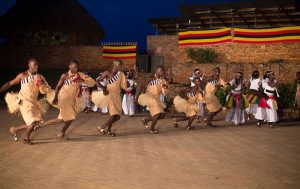
7 Days Uganda Cultural Safari
This safari starts from Kampala which is Uganda’s capital city, that has many important cultural sites including Bulange, Lubiri Palace and the Kasubi Tombs.
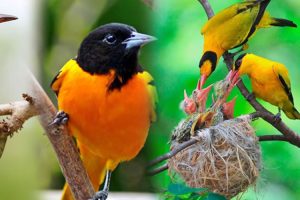
5 Days Uganda Birding Safari
The 5 Days Uganda Birding Safari is an immersive adventure designed for bird enthusiasts, exploring some of Uganda’s most renowned birding hotspots. From the urban sanctuaries of Entebbe to the pristine forests and wetlands
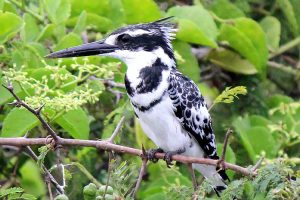
7 Days Birding in Uganda
7 Days Birding in Uganda tour takes you for bird watching in Murchison Falls Conservation Area looking out for all the specials and some of the Guinea Congo biome endemics.

9 Days Uganda Birding Safari
9 days Uganda birding safari takes you through Uganda’s very best in the shortest time possible, offering you chances to have stunning views and listen to calls of over 1081 bird species in Africa.
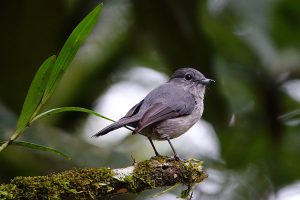
3 Days Lake Mburo Birding Safari
This 3 Days Lake Mburo Birding Safari takes you to Lake Mburo Ntaional Park, one of the most perfect parks in Uganda for a birding safari. This park, the closest to Kampala is a real treasure to birders!
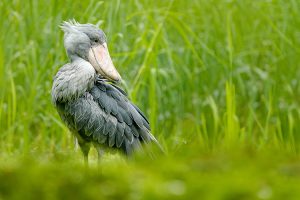
10 Days Uganda Birding Tour
Our 10 Days Uganda Birding Tour offers an unparalleled birdwatching experience, featuring the best birding spots in Uganda.
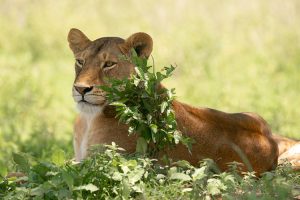
5 Days Uganda wildlife Tour
The 5 days Uganda Wildlife Tour offers an immersive experience in the diverse ecosystems and captivating wildlife of Uganda. From thrilling game drives to unforgettable encounters with mountain gorillas, this safari promises adventure and discovery amidst the natural beauty of the Pearl of Africa.
